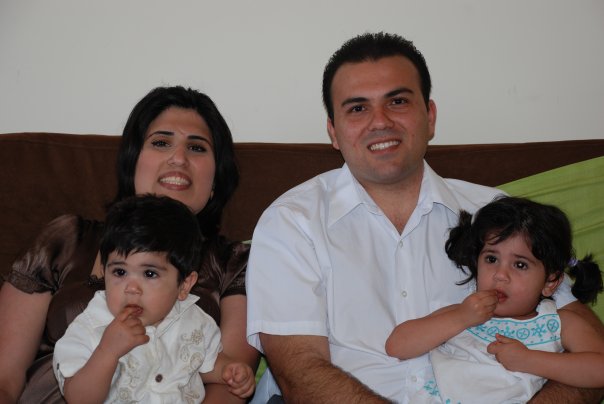Iranian-American Christian Convert’s 8-Year Sentence Upheld
“Iran is keeping Saeed illegally. Saeed’s problem is not political. His problem is in his choice of religion. Saeed is also a US citizen and Iran can’t keep him in prison,” Naghmeh Abedini, who is a US resident, told the Campaign.
“Saeed converted in 2004, during Mohamad Khatami’s presidency. We got married according to Christianity and our marriage was registered. During the Khatami era, they would allow it. His activities for collecting signatures from followers of Christian faith go back to the same period, too, when there was no problem and it was allowed. He left Iran in 2006. Therefore we objected, stating that Saeed did not break any laws in Iran. According to Articles 18 and 19 of the Iranian Constitution, there is freedom of religion in Iran. So, it’s not Saeed who broke the law, it is Iran who has broken Iran’s laws and its international obligations, having kept Saeed in prison for a year,” she told the Campaign.
Nasser Sarbazi, Saeed Abedini’s lawyer, said on Monday, August 26, that the appeals court upheld his client’s sentence in full. The defense lawyer said that the appeals court upheld his client’s eight-year prison sentence “without regard for the objections to the initial indictment.”
Christian pastor Saeed Abedini was conducting a routine visit to the non-profit orphanage his family helped to start in Rasht when Iranian security forces arrested him and seized his passport in July 2012. Five months later, Iranian courts convicted him of “undermining national security,” accusing him and other Christian converts of waging a “soft war” against the Iranian government through their practice of Christianity in informal house churches.
Naghmeh Abedini told the Campaign that US authorities should strive to release her husband, who is a US citizen. “After hearing the news that Saeed’s sentence was upheld, I talked with newspapers and television stations here, telling them that injustice threatens everywhere, and if there is injustice somewhere and we don’t make a move and think that our turn won’t come, we have made a mistake. I told the US government, too, that if we keep silent, our turn will come, too. We are responsible and silence in the face of wickedness is wickedness itself,” she said.
“Unfortunately, the US system has approached this situation very softly. Saeed is a US citizen, too, and Iran is breaking the law by imprisoning Saeed. I have yet to hear a word from [US President] Obama, but many American senators have signed letters for Saeed’s release,” Naghmeh Abedini continued.
Asked whether the family intends to request a retrial, she said, “We don’t know for now. We only heard the news today. But by rejecting our appeal and upholding the ruling of the lower court, there is no other way for us to pursue this case. Now we will have to review the options to see what can be done, but the pressure from outside Iran will continue.”
Naghmeh Abedini added, “To tell you the truth, I am not very optimistic, but I hope that as he shows the world that he wants to give freedom to the people, [Iranian President] Rouhani acts the same way and finds a way for the release of Saeed and other prisoners who are in prison for their religion or thinking. Six hundred thousand Americans signed a letter for Saeed’s release, and we are all waiting to see whether there will be any action from Mr. Rouhani according to the promises he made himself.”
Asked about Saeed Abedini’s physical conditions in prison, his wife said, “His spirits are good, but we know that he has been beaten at least twice inside the prison, which has led to internal hemorrhaging for him, and he continues to be in pain from this. Unfortunately, it is quite common for prisoners to be beaten without any subsequent medical review, and prisoners live with pain inside the prison.” Naghmeh Abedini also added that despite a whole year inside prison, Saeed Abedini has not been allowed even once to have in-person visits or to make telephone calls to his family.







